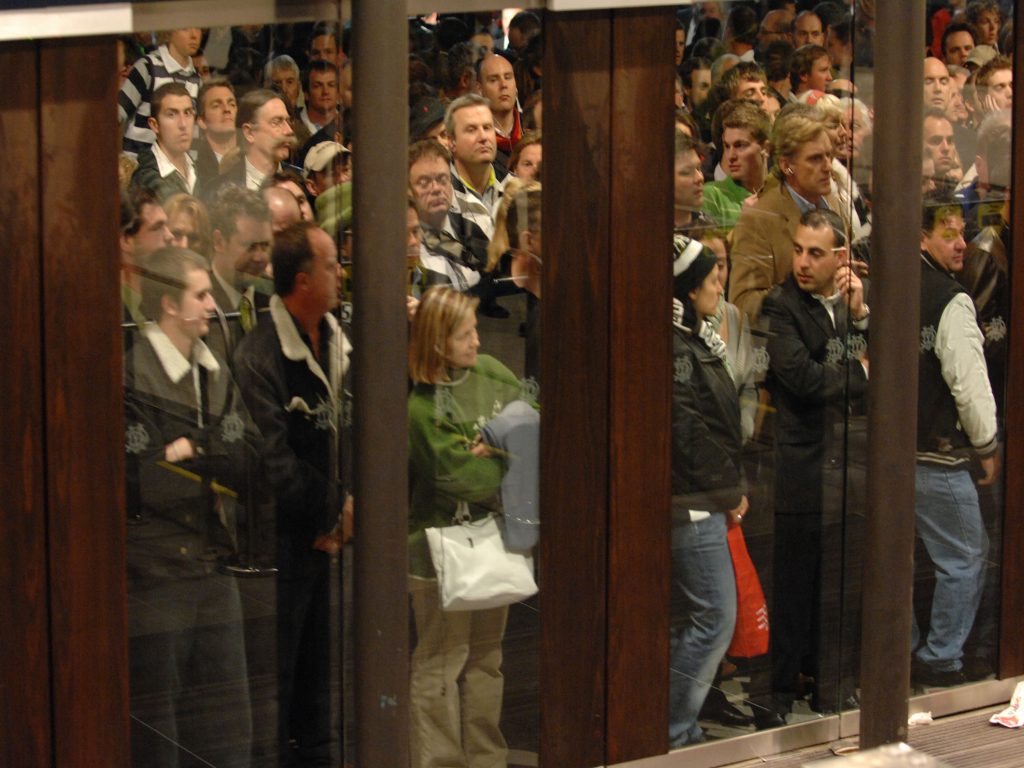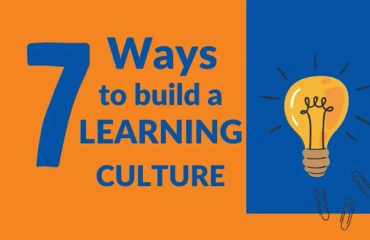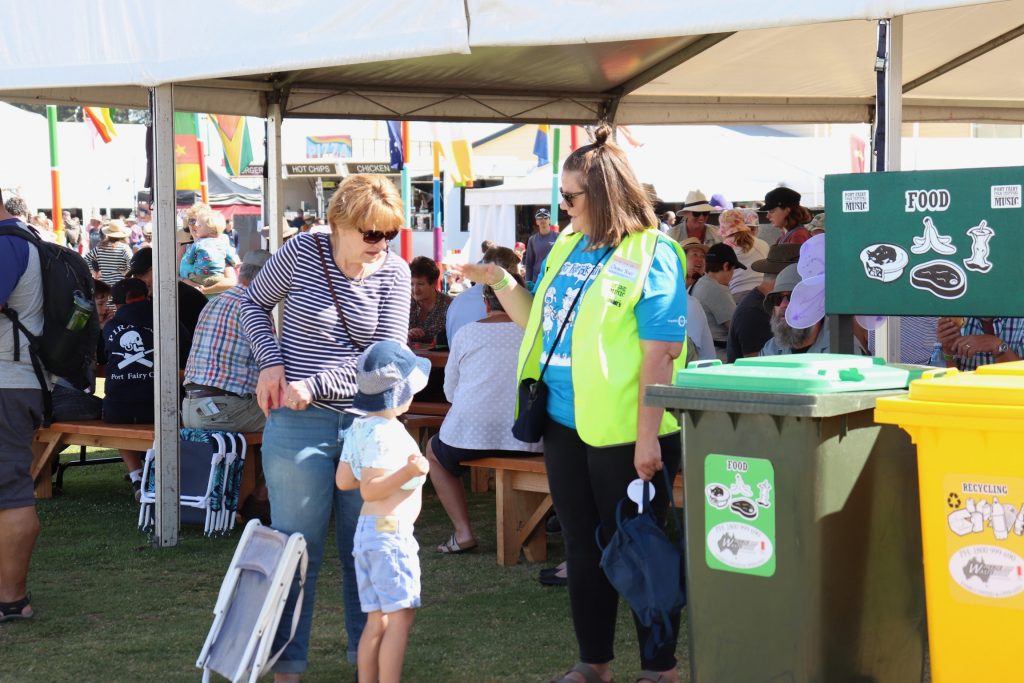In a world where the events industry is booming, the demand for skilled and creative event managers is higher than ever. Whether it’s a corporate conference, a lavish wedding, or a music festival, the success of any event hinges on meticulous planning, seamless execution, and a touch of artistic flair. Aspiring event managers in Australia are fortunate to have a plethora of educational options to choose from. In this blog, we will explore the best event management courses in Australia, shedding light on the institutions that stand out for their comprehensive curriculum, industry connections, and track record of producing successful event professionals.
- RMIT University – Bachelor of Business (Event Management)
RMIT University, based in Melbourne, is renowned for its innovative programs and industry-focused approach. The Bachelor of Business (Event Management) offered by RMIT is a standout choice for those seeking a well-rounded education in event management. The program covers key areas such as event planning, marketing, logistics, and risk management. Students benefit from RMIT’s strong industry connections, with opportunities for internships and practical experience in real-world event settings. The course also incorporates guest lectures by industry experts, providing valuable insights and networking opportunities for aspiring event managers.
- William Blue College of Hospitality Management – Bachelor of Business in Event Management
Situated in Sydney, the William Blue College of Hospitality Management is a leading institution dedicated to producing professionals in the hospitality and event management sectors. The Bachelor of Business in Event Management is a comprehensive program that equips students with the skills and knowledge needed to thrive in the dynamic events industry. The curriculum covers event design, budgeting, marketing, and project management. What sets William Blue apart is its strong emphasis on practical experience, with students actively involved in organizing real events, gaining hands-on skills that are invaluable in the professional world.
- TAFE Queensland – Diploma of Event Management
For those looking for a more hands-on and practical approach to event management education, the Diploma of Event Management at TAFE Queensland is an excellent choice. TAFE Queensland is a respected institution with a focus on vocational education and training. The diploma program covers event coordination, logistics, and marketing, preparing students for the challenges of the industry. With a strong emphasis on practical skills, TAFE Queensland provides students with the opportunity to plan and execute events as part of their coursework, ensuring they graduate with real-world experience.
- University of Technology Sydney (UTS) – Master of Business in Event Management
The University of Technology Sydney (UTS) offers a Master of Business in Event Management, catering to individuals who already possess a bachelor’s degree and are looking to specialize further in event management. This program is designed to deepen students’ understanding of the strategic and business aspects of event management. UTS, located in the heart of Sydney, provides a vibrant and dynamic environment for students to engage with industry professionals and stay updated on the latest trends. The curriculum includes modules on event marketing, sponsorship, and risk management, offering a well-rounded education for aspiring event leaders.
- Box Hill Institute – Advanced Diploma of Event Management
Located in Melbourne, Box Hill Institute is a recognized provider of vocational and higher education. The Advanced Diploma of Event Management offered by Box Hill Institute is a comprehensive program designed for individuals who want to delve deeper into the intricacies of event planning and management. The curriculum covers event design, stakeholder management, and the use of technology in events. Box Hill Institute’s strong industry connections provide students with opportunities for internships and networking, ensuring they are well-prepared for the competitive events industry upon graduation.
- Edith Cowan University (ECU) – Bachelor of Arts (Event Management)
Edith Cowan University, based in Perth, offers a Bachelor of Arts with a major in Event Management. This program is designed for students who want a broader perspective on the events industry within the context of arts and culture. ECU’s curriculum covers event planning, marketing, and cultural aspects of events, preparing students for diverse roles in the field. The university’s commitment to practical experience is evident in its work-integrated learning opportunities, allowing students to apply their knowledge in real-world settings. Additionally, ECU’s strong ties with industry professionals provide students with valuable networking opportunities.
- Event School London – Professional Event Management Course
For those seeking specialized short courses in event management, Event School London offers a Professional Event Management Course. While not based in Australia, this online course caters to an international audience, including aspiring event managers in Australia. The course covers essential aspects of event management, including planning, budgeting, and marketing. What sets it apart is its flexibility, allowing students to learn at their own pace. Event School London’s instructors are industry professionals with extensive experience, providing students with practical insights and advice.
What about Venue Management?
Venue managers are the unsung heroes behind the scenes, ensuring that events run smoothly from conception to execution. A specialized education in venue management not only hones technical skills but also cultivates a strategic mindset necessary for overcoming the unique challenges posed by different event scenarios.
- Venue Management School at The International College of Hotel Management (ICHM)
While event management is a multifaceted field, a crucial aspect often overlooked is venue management. The International College of Hotel Management (ICHM) offers a specialized program that addresses this gap — the Venue Management School. Situated in Adelaide, ICHM is globally recognized for its hospitality and hotel management programs.
The Diploma of Venue Management at ICHM is a unique program tailored for individuals aspiring to specialize in the intricacies of managing venues for events. Covering everything from selecting the ideal venue to ensuring its smooth operation during events, this diploma program equips students with the skills needed for a successful career in venue management.
- Venue Managers School hosted by Venue Management Australia
Venue Managers School is a two year program (one week over two consecutive years) created by the Venue Managers Association. This is a program created and delivered by industry professionals who are leaders in the industry. The Venue Management School is designed to cater to individuals keen on mastering the nuances of venue management. Here’s what sets this program apart:
VMA, being a prominent association in the events industry, provides students with unparalleled networking opportunities. Connections with professionals and organizations within the VMA network can be instrumental in shaping a successful career in venue management.
Choosing the right event management course is a crucial step towards a successful and fulfilling career in the dynamic events industry. The institutions mentioned in this blog have proven themselves as leaders in providing quality education, combining theoretical knowledge with practical experience. Whether you prefer a bachelor’s degree, diploma, master’s program, or a course specifically for venue managers, these institutions offer diverse options to suit your educational and career goals. As you embark on your journey to become an event management professional, consider the unique strengths of each program, the industry connections provided, and the hands-on experiences that will shape you into a competent and creative event manager. The stage is set, and the spotlight is on you – take the first step toward an exciting and rewarding career in event management.
Unveiling Excellence: The Best Event Management Courses in Australia
In a world where the events industry is booming, the demand for skilled and creative event managers is higher than ever. Whether it’s a corporate conference, a lavish wedding, or a music festival, the success of any event hinges on meticulous planning, seamless execution, and a touch of artistic flair. Aspiring event managers in Australia are fortunate to have a plethora of educational options to choose from. In this blog, we will explore the best event management courses in Australia, shedding light on the institutions that stand out for their comprehensive curriculum, industry connections, and track record of producing successful event professionals.
- RMIT University – Bachelor of Business (Event Management)
RMIT University, based in Melbourne, is renowned for its innovative programs and industry-focused approach. The Bachelor of Business (Event Management) offered by RMIT is a standout choice for those seeking a well-rounded education in event management. The program covers key areas such as event planning, marketing, logistics, and risk management. Students benefit from RMIT’s strong industry connections, with opportunities for internships and practical experience in real-world event settings. The course also incorporates guest lectures by industry experts, providing valuable insights and networking opportunities for aspiring event managers.
- William Blue College of Hospitality Management – Bachelor of Business in Event Management
Situated in Sydney, the William Blue College of Hospitality Management is a leading institution dedicated to producing professionals in the hospitality and event management sectors. The Bachelor of Business in Event Management is a comprehensive program that equips students with the skills and knowledge needed to thrive in the dynamic events industry. The curriculum covers event design, budgeting, marketing, and project management. What sets William Blue apart is its strong emphasis on practical experience, with students actively involved in organizing real events, gaining hands-on skills that are invaluable in the professional world.
- TAFE Queensland – Diploma of Event Management
For those looking for a more hands-on and practical approach to event management education, the Diploma of Event Management at TAFE Queensland is an excellent choice. TAFE Queensland is a respected institution with a focus on vocational education and training. The diploma program covers event coordination, logistics, and marketing, preparing students for the challenges of the industry. With a strong emphasis on practical skills, TAFE Queensland provides students with the opportunity to plan and execute events as part of their coursework, ensuring they graduate with real-world experience.
- University of Technology Sydney (UTS) – Master of Business in Event Management
The University of Technology Sydney (UTS) offers a Master of Business in Event Management, catering to individuals who already possess a bachelor’s degree and are looking to specialize further in event management. This program is designed to deepen students’ understanding of the strategic and business aspects of event management. UTS, located in the heart of Sydney, provides a vibrant and dynamic environment for students to engage with industry professionals and stay updated on the latest trends. The curriculum includes modules on event marketing, sponsorship, and risk management, offering a well-rounded education for aspiring event leaders.
- Box Hill Institute – Advanced Diploma of Event Management
Located in Melbourne, Box Hill Institute is a recognized provider of vocational and higher education. The Advanced Diploma of Event Management offered by Box Hill Institute is a comprehensive program designed for individuals who want to delve deeper into the intricacies of event planning and management. The curriculum covers event design, stakeholder management, and the use of technology in events. Box Hill Institute’s strong industry connections provide students with opportunities for internships and networking, ensuring they are well-prepared for the competitive events industry upon graduation.
- Edith Cowan University (ECU) – Bachelor of Arts (Event Management)
Edith Cowan University, based in Perth, offers a Bachelor of Arts with a major in Event Management. This program is designed for students who want a broader perspective on the events industry within the context of arts and culture. ECU’s curriculum covers event planning, marketing, and cultural aspects of events, preparing students for diverse roles in the field. The university’s commitment to practical experience is evident in its work-integrated learning opportunities, allowing students to apply their knowledge in real-world settings. Additionally, ECU’s strong ties with industry professionals provide students with valuable networking opportunities.
- Event School London – Professional Event Management Course
For those seeking specialized short courses in event management, Event School London offers a Professional Event Management Course. While not based in Australia, this online course caters to an international audience, including aspiring event managers in Australia. The course covers essential aspects of event management, including planning, budgeting, and marketing. What sets it apart is its flexibility, allowing students to learn at their own pace. Event School London’s instructors are industry professionals with extensive experience, providing students with practical insights and advice.
What about Venue Management?
Venue managers are the unsung heroes behind the scenes, ensuring that events run smoothly from conception to execution. A specialized education in venue management not only hones technical skills but also cultivates a strategic mindset necessary for overcoming the unique challenges posed by different event scenarios.
- Venue Management School at The International College of Hotel Management (ICHM)
While event management is a multifaceted field, a crucial aspect often overlooked is venue management. The International College of Hotel Management (ICHM) offers a specialized program that addresses this gap — the Venue Management School. Situated in Adelaide, ICHM is globally recognized for its hospitality and hotel management programs.
The Diploma of Venue Management at ICHM is a unique program tailored for individuals aspiring to specialize in the intricacies of managing venues for events. Covering everything from selecting the ideal venue to ensuring its smooth operation during events, this diploma program equips students with the skills needed for a successful career in venue management.
- Venue Managers School hosted by Venue Management Australia
Venue Managers School is a two year program (one week over two consecutive years) created by the Venue Managers Association. This is a program created and delivered by industry professionals who are leaders in the industry. The Venue Management School is designed to cater to individuals keen on mastering the nuances of venue management. Here’s what sets this program apart:
VMA, being a prominent association in the events industry, provides students with unparalleled networking opportunities. Connections with professionals and organizations within the VMA network can be instrumental in shaping a successful career in venue management.
Choosing the right event management course is a crucial step towards a successful and fulfilling career in the dynamic events industry. The institutions mentioned in this blog have proven themselves as leaders in providing quality education, combining theoretical knowledge with practical experience. Whether you prefer a bachelor’s degree, diploma, master’s program, or a course specifically for venue managers, these institutions offer diverse options to suit your educational and career goals. As you embark on your journey to become an event management professional, consider the unique strengths of each program, the industry connections provided, and the hands-on experiences that will shape you into a competent and creative event manager. The stage is set, and the spotlight is on you – take the first step toward an exciting and rewarding career in event management.











